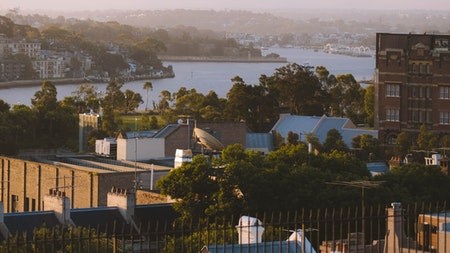Property, like all investments, is cyclical. There are good years and not so good ones. The ‘70s, ‘80s and ‘90s were volatile years and the early 2000s saw a Rainbow Nation run of 7 years where house price growth was over 15% (in 2004 it was more than double that).
Then came the 2008 recession, and 2009 saw negative growth. Since then, the South African property market has wobbled along at a low average rate of growth.
What can we expect from the residential property market going forward?
CEO of Just Property, Paul Stevens is cautiously upbeat.
“Back in 2008, even before the US subprime mortgage crisis pricked the housing bubble, many commentators in South Africa had noted that here, too, a correction was overdue. Although our banks held up better than those elsewhere around the world, we did indeed experience a correction in the property market. Now, in the midst of a pandemic, there’s growth happening in the right areas,” says Stevens.
What has happened?
Forecasters who, in 2020, predicted that “house prices could lose 14.5% of their value” have been proved wrong. As it turned out, house prices grew every month in 2020 and in the first four months of 2021. May 2021 was the first time in 11 months that price growth fell, and according to Lightstone’s July 2021 report, it was back in positive territory in July. Year-on-on-year house price inflation was at 5.07%, a five-year record high.
What forecasters in the early days of Covid-19 could not have predicted, was the run on certain types of properties (e.g. coastal and other “Zoom towns”).
Erica Venter of BetterBond says that their business in the Eastern Cape has grown by 194% due to increased demand. “New developments in areas such as Gqeberha’s Summerstrand and Humewood appeal particularly to Gauteng buyers who have relocated to work remotely while enjoying the benefits of coastal living.”
Stevens points to the entry-level property market (R750k) being very active: “Just Property’s head office is in Gqeberha and here, as well as in other cities, we’ve seen former tenants accounting for a large portion of entry-level buyers. Thanks to the low interest rates, their monthly bond payments are the same as their monthly rental on a similar property would have been.”
This will have a positive effect on upstream property purchases, he says. “Those who are selling their sub-R750k properties can move into the next price bracket and so on up to the higher price bands."
As long as interest rates remain low and unemployment remains steady, we expect people to continue to buy ‘up’.
Another factor that has happened is that the banks’ currently have a healthy appetite; TPN’s Michelle Dickens reported in her recent “Essential Industry Insights” that the number of mortgages being granted by banks has remained stable over recent years at 140 000 - 160 000 mortgages being granted per annum. In 2020 and the first 6 months of 2021, 70% of property transactions were underpinned by mortgages!
What will happen?
Stevens is optimistic about the next 5 years, as the current influx of first-time buyers will then be looking to buy their next property. And he has more good news, this time for landlords, who were hard hit during the lockdowns. “Tenant arrears and vacant rental properties are showing signs of recovery,” Stevens notes, referencing PayProp’s latest report.
“If landlords can wait it out a little longer, the housing market (and property inflation rates) will continue to recover. Bowing out and placing rental properties on the market to sell could have an adverse result, especially if sales stock floods the market,” he warns.
“Realistically, prices will start rationalising,” Stevens predicts, “but patient buyers may still get value for money as properties in the mid- to upper-bands stay on the market longer, turning it to a buyers’ market.”
The economy will be constrained for some time and, as government subsidies like TERS come to an end, Stevens expects the prime lending rate to remain steady at the current level of 7%, at least until the end of 2021 and with only small, incremental increases in 2022.
“While the Reserve Bank has said it might raise interest rates in the fourth quarter of 2021, most economists expect current levels to be maintained."
"Money in the bank is not earning much interest, so it is potentially better invested in property that will achieve a better return on investment.”
Trends to watch
Stevens is excited about the possibilities of co-buying. “During the lean years of the past decade or so, we saw adult children moving back in with their parents. The current low interest rates and a growing appreciation for the benefits of investing in property have seen South Africans looking at novel ways to finance property ownership,” he says.
South Africans have always been open to collective investment - look at the number of stokvels and investment clubs.
“Not surprisingly in the current economic climate, more and more people are looking to form syndicates to buy property, whether for investment purposes (buy to let), or to live together in an owned home, rather than paying rent,” says Stevens.
He notes that FNB is the first bank to appreciate this trend, offering a collective-buying home-loan scheme for up to 12 people. “This is another sign of an active market and yet again proves the importance South Africans place on home-ownership. We’re in for an interesting few years, and I’m cautiously, but very, optimistic,” Stevens concludes.
Writer : Deirdre Moore





